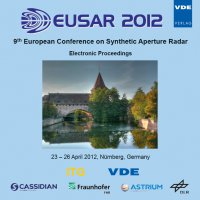Model Free Polarimetric SAR Tomography of a Tropical Forest
Conference: EUSAR 2012 - 9th European Conference on Synthetic Aperture Radar
04/23/2012 - 04/26/2012 at Nuremberg, Germany
Proceedings: EUSAR 2012
Pages: 4Language: englishTyp: PDF
Personal VDE Members are entitled to a 10% discount on this title
Authors:
Mariotti d’Alessandro, Mauro; Tebaldini, Stefano (Dipartimento di elettronica e informazione, Politecnico di Milano)
Abstract:
The aim of this paper is to analyze the scattering mechanisms (SMs) which take part in a forest when imaged by means of a SAR system. In such a natural environment many different targets can contribute to the radar signal, two main contributions can be recognized though. The former has the phase center placed at the ground level whereas the latter corresponds to the canopies above it. In this work particular attention is paid to the ground level so that it had to be isolated from the contribution of the canopies. The rejection of contribution coming from upper layers has been achieved by means of SAR tomography (TomSAR). Whenever the resolution along the vertical is fine enough TomSAR is able to focus on a specific height according to a model free approach returning a full resolution Single Look Complex (SLC) image. Such a SLC associated with the ground level has been then analyzed by means of standard polarimetric processing to understand the physical phenomena underlying the data: a strong contribution from the ground trunk interaction has been found. The behavior of such a double bounce mechanism has been simulated by means of a very simple model for the dihedral backscattering. The proper setting of parameters of the model revealed that the length of the trunk has a very little impact compared to the length of the basis of the dihedral. Such a conclusion has been finally interpreted by referring to macroecological considerations.


